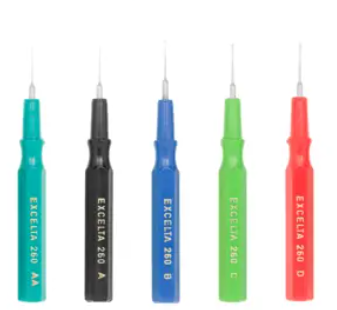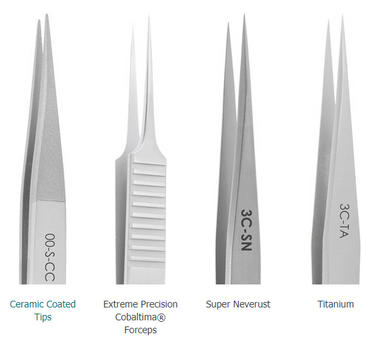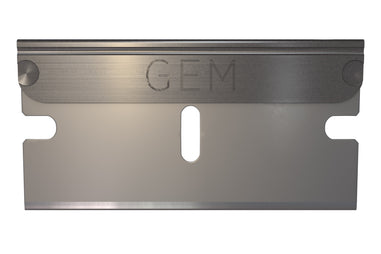- No products in the cart.
Hard wire cutters play a significant role in all types of laboratories, electronic and medical device manufacturing. They come in various shapes and sizes and need to be used properly to meet specifications. It's imperative to use the correct hard wire cutter for the correct job.
In this article, we will provide a quick guide to choosing the best hard wire cutters. But before that, let’s learn a little about the relevant details first.
What types of wires are considered hard wires?
Nitinol is the most frequently used hard wire in medical device industry. Nitinol wire which is made of an alloy of nickel and titanium, which has unique mechanical properties that make it attractive for use in a number of nitinol wire applications. There has been an explosion of growth of Nitinol in the past decade mostly due to Health Care providers and patients who have welcomed the transition from traditional open-surgical procedures, which require long hospital stays, to minimally invasive techniques. As surgeons create better techniques, older types of procedures become less common, including many open procedures. This demand for less-invasive procedures has allowed novel instrumentation and implants to be designed. An increasing number of these medical devices use Nitinol as the critical component.

What Wire Types are considered as Soft Wires?
The electrical wires we see on in our daily use appliances, telecommunication equipment and gauges are the soft wires. They feature a soft line consisting of scum. There is also a larger and flexible circuit in these than the hard wires.
Top Hard Wire Cutting Applications
Some of the top hard wire cutting applications include cutting nitinol, steel, aluminum, iron, brass and copper steel wires. The cutters come with insulated handles that protect the users against from the wires they work with.
If one uses diagonal hard cutting tools, they will feature intersecting jaws that slash the wire at an angle. As a result, the user gets an angled flat tip. Symmetrical cutters on the other hand, leave behind pointed tips.
If you wish to cut a wire close to the base, then your best option is a flush cutter.
How to Choose a Cutter Head Shape
When you’re choosing a cutter’s head shape, you need to consider several factors. These include:
- First comes the oval head, which is the most common head shape of all for cutters. This tool has the maximum metal amount behind its cutting edge. Perhaps this is why the tool delivers an extended tool life.
- The other cutter head shape you can consider is the relieved head. Many refer to it as tapered head too because it gives you maximum access to areas that you wouldn’t reach easily otherwise. This cutting tool has a relieved face and a diagonal profile, which allows you better access.
- The third head shape option you have is the simple tapered head, which also has a somewhat diagonal profile. However, it features lesser metal behind its cutting edge and thus, also allows better access to difficult areas.
How to Choose the Type of Cut
To find the perfect type of cut for your needs, you must consider the following factors.
- If you’re looking for cleaner and purer cuts, then you must choose a lazer-flush cutter. This one gives you a sleek and smooth cut, just as you want, with no pinch on the lead. But beware, this cut type gives you extremely sharp cutting edges. These cutters also have no bevel.
- Then we have the optimum –flush cutter and this one has a .005 bevel cutting edge. It gives a very small pinch on the lead, less than the semi-flush cutter produces. Since it has a very small bevel, the optimum-flush also produces fewer cuts.
- Semi-flush are the most common choice cutters. They have a .010” bevel cutting edge. Due to this feature, the cutter gives several cuts than its optimum counterpart but does produce a pinch on the wire.
Some Other Types of Wire Tools
When you’re working with a range of wires, you must outfit your workbench with more than just one cutting tool. Apart from the wire cutters, you must consider adding a few other essentials tools. With a complete set in fact, you can enjoy better results in your installation or remodeling projects.
Here are some other helpful tools for you:
Wire Strippers
If you want to remove insulation from your electric wires, then wire strippers are the handiest tool for making contact. You can find them in automatic and manual types. This tool features opposing blades like that of a scissor and a notch in the center.
Wire Crimpers
If you’re project includes affixing connectors to the ends of cables, then wire crimpers are just what you need. This tool resembles a pair of pliers but it joins two pieces of ductile materials. The crimper deforms either both or one of the pieces holding them together.
You can find more than one type of wire crimp and it is essential to determine what kind of wires you will e working with to choose the right one.
Pliers
Pliers are also quite common tools and perform somewhat like scissors. They feature two levers that come together at a fulcrum in a joint. Pliers do not have levers or blades but rather jaws that helps grip an object.
Final Thoughts
Wire cutting tools are helpful for more several applications and make handling wires safer and easier. In electrical repairs or similar projects, one has to work with hard and soft wires and each requires specific types of tools.
Where can you Purchase?
Lab Pro offers a large variety of hard wire cutters. For over 40 years, Lab Pro Inc. has been committed to delivering the highest quality chemicals, tweezers and hard wire cutters, lab supplies, and cleanroom PPE apparel to medical device and electronic manufacturing companies and laboratories worldwide. To learn more, visit the biggest Lab Supply showroom in California, or contact us online or at 888-452-2776.












































